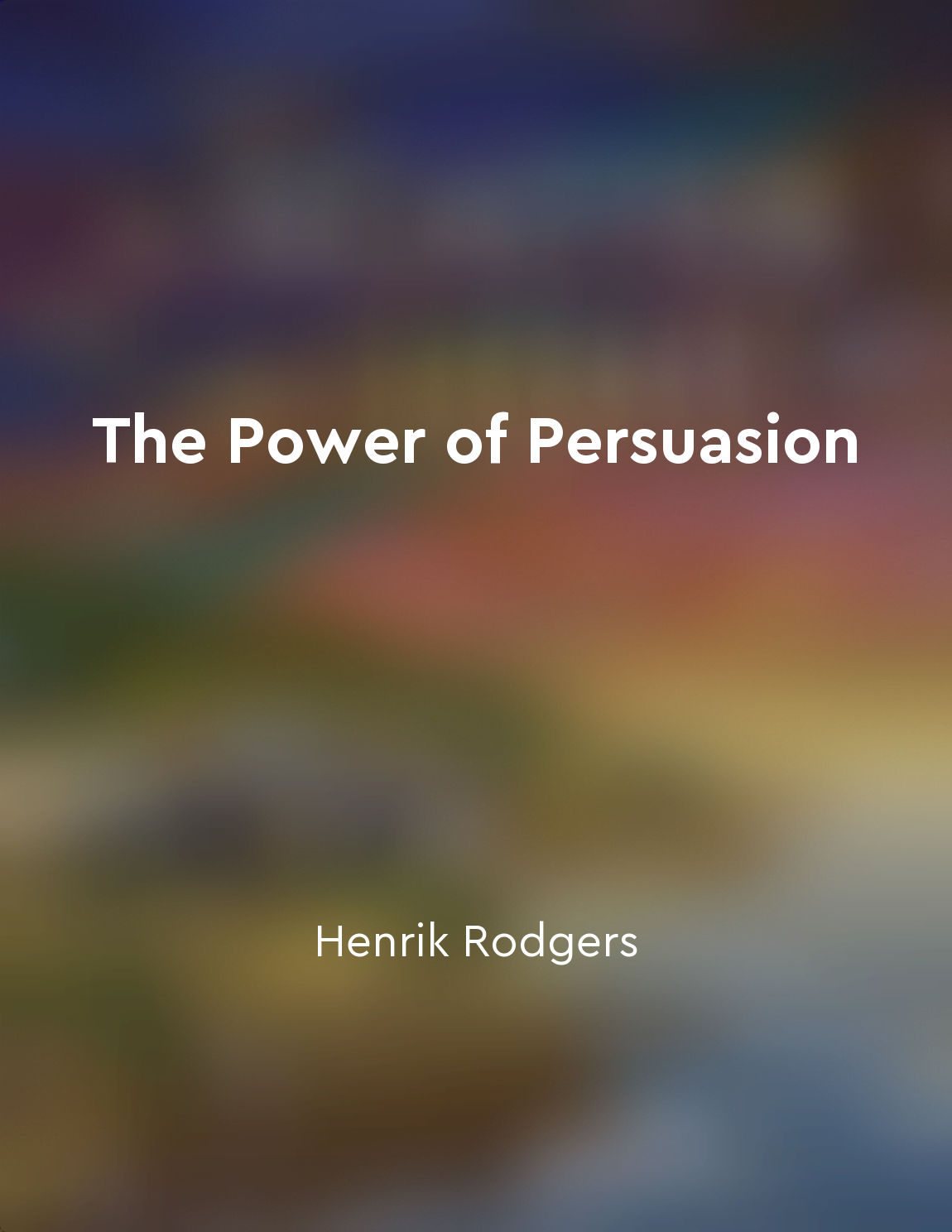Audio available in app
Understanding cognitive biases is essential from "summary" of The Psychology of Persuasion by Kevin Hogan
Cognitive biases are the mental shortcuts that our brains use to make sense of the world. They are ingrained in our thinking processes and can significantly impact our decision-making abilities. By understanding these biases, we can better comprehend why people behave the way they do and how we can influence their choices. One of the key reasons why understanding cognitive biases is essential is that they can lead us astray without us even realizing it. These biases often operate at a subconscious level, influencing our perceptions and judgments without our conscious awareness. As a result, we may make decisions that are not in our best interest, simply because our brains are wired to think in a certain way. Moreover, cognitive biases can have a profound impact on how we interpret information and form beliefs. For example, confirmation bias causes us to seek out information that confirms our existing beliefs while ignoring evidence that contradicts them. This can lead to a distorted view of reality and prevent us from considering alternative viewpoints. By becoming aware of the various cognitive biases that influence our thinking, we can learn to recognize when they are at play and take steps to mitigate their effects. This heightened self-awareness can help us make more informed decisions and avoid falling into common traps that can cloud our judgment. In the realm of persuasion, understanding cognitive biases is particularly crucial. Persuasion is all about influencing people's beliefs and behaviors, and cognitive biases play a significant role in shaping how individuals respond to persuasive messages. By leveraging our knowledge of these biases, we can craft more effective persuasive strategies that resonate with our audience and lead to desired outcomes.- Understanding cognitive biases is essential because they impact every aspect of our thinking and decision-making processes. By familiarizing ourselves with these biases, we can become more discerning thinkers, better equipped to navigate the complexities of human behavior and interaction.
Similar Posts
Ask openended questions to encourage self-disclosure
When you want someone to open up to you, it's important to ask questions that invite them to share more about themselves. Open-...
Being clear and concise is important in persuasive messaging
When crafting a persuasive message, simplicity is key. The more straightforward and easy to understand the message is, the more...
Implementing the footin-the-door technique for persuasion
The foot-in-the-door technique is a classic persuasion strategy that involves starting with a small request before moving on to...
Sharing is fundamental
In this new world, where bits are the most valuable commodity, sharing is fundamental. It is the engine that drives this networ...
Enhancing problemsolving skills
To improve one's problem-solving skills, it is essential to practice logical thinking. Logical thinking involves analyzing situ...
Neuroimagery can provide valuable insights into consumer preferences
Neuroimagery, such as fMRI scans, allows researchers to peek inside the brain and observe how it responds to different stimuli....
Social comparison theory posits that individuals evaluate themselves by comparing themselves to others
Social comparison theory suggests that individuals have a natural tendency to evaluate themselves by comparing themselves to ot...

Use storytelling to captivate your audience
Storytelling is a powerful tool when it comes to persuasion. It has the ability to captivate your audience in a way that facts ...

The power of compounding cannot be underestimated
Imagine you have two options: you can either receive $1 million in cash right now, or you can take one penny and double it ever...

Stories that are vivid and emotional are more likely to be believed
Think about the last time you heard a story that really stuck with you. Chances are, it was a tale that was not only vivid but ...

